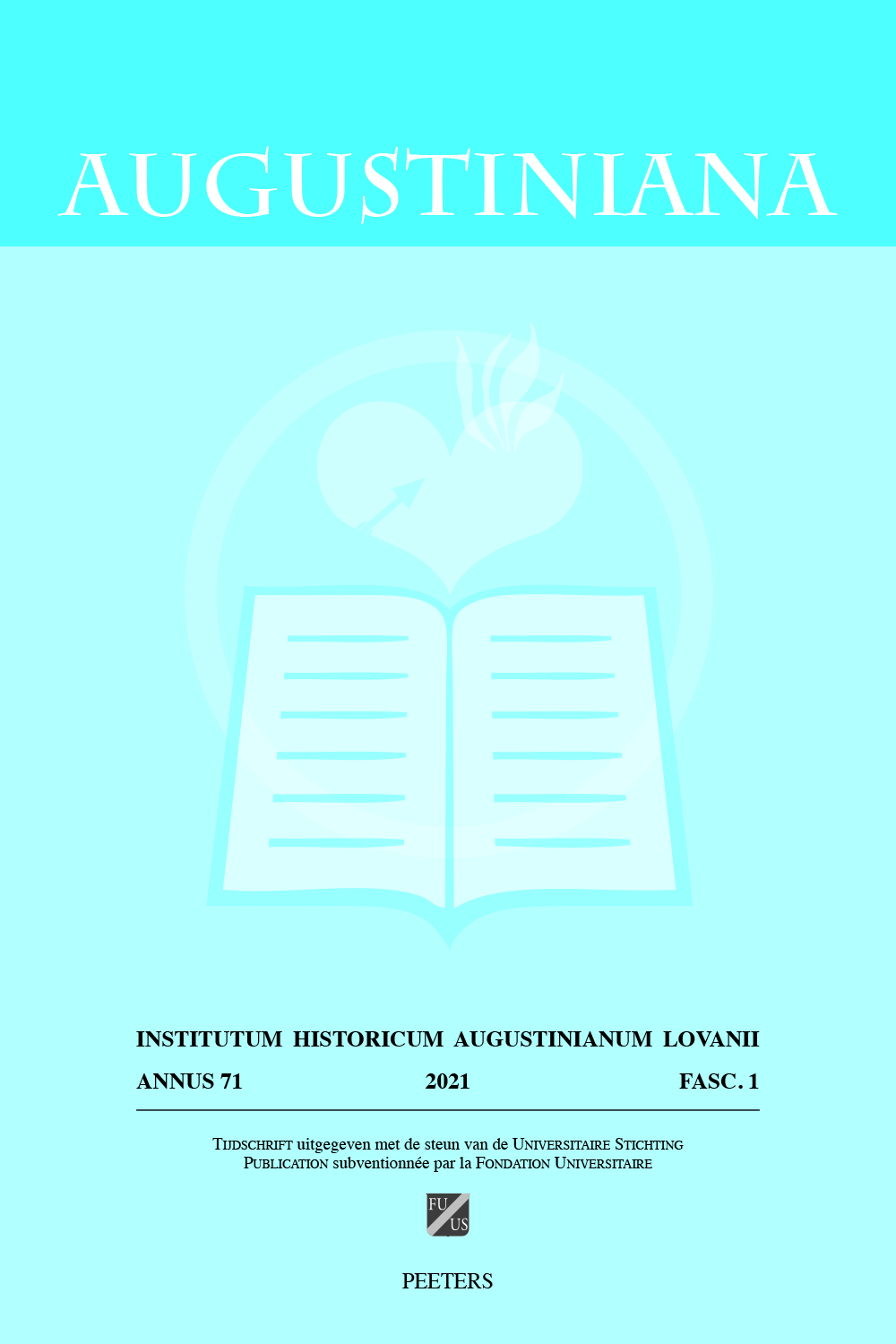 previous article in this issue previous article in this issue | next article in this issue  |

Preview first page |
Document Details : Title: The Ambiguous Reception of the Doctrine of Duplex Iustitia in Leuven (1544-1556) Author(s): GERACE, Antonio , GIELIS, Gert Journal: Augustiniana Volume: 68 Issue: 1 Date: 2018 Pages: 91-123 DOI: 10.2143/AUG.68.1.3285185 Abstract : This article deals with the doctrines of double justice and, closely related, that of double justification, which were developed in the context of the Diet of Regensburg (1541) in an attempt at reconciling Catholics and Lutherans by introducing the notions of 'inherent' and 'imputed' justice. More specifically, attention is paid to the way in which the Cologne theologian Johann Gropper expounded the doctrine in his Antididagma (1544) and to the way in which this explanation was received in Leuven. Under the guidance of Ruard Tapper, the Leuven Faculty of Theology rebuked Gropper for his opinions. After mail correspondence between Leuven and Gropper, the latter slightly adapted his position, as is demonstrated by his Articuli antididagmatis. In 1544, the Leuven theologians issued 59 articles, subsequently condensed to 32, which were conceived as accurately summarizing the teachings of the Catholic Church. The eighth article criticizes Gropper’s ideas on justification. In 1554, an elaboration and further clarification of the 32 articles, entitled Declaratio articulorum, was published in Lyon under Tapper’s name but without his knowing. Since the text was strongly influenced by Gropper’s views, Tapper distanced himself from it, and instead published an Explicatio articulorum (1555), which strictly followed the Tridentine decree on justification, exposing once again the 'unreliability' of Gropper’s doctrine of justification. Remarkably, however, even in the early 1550s, when the Council of Trent had already formally rejected the doctrine, two important Franciscan theologians active in Leuven, Nicholas Tacitus Zegers and Adam Sasbout, in their works showed acquaintance with, and sympathy for the doctrine of double justice. |
|


